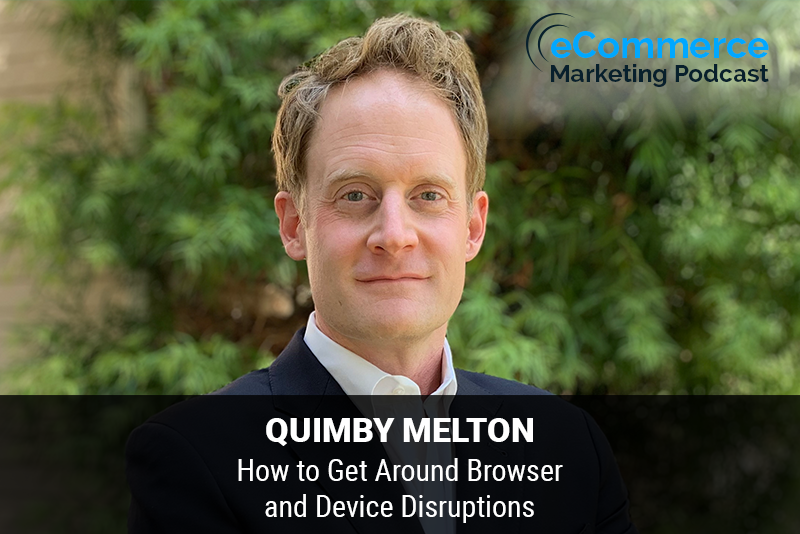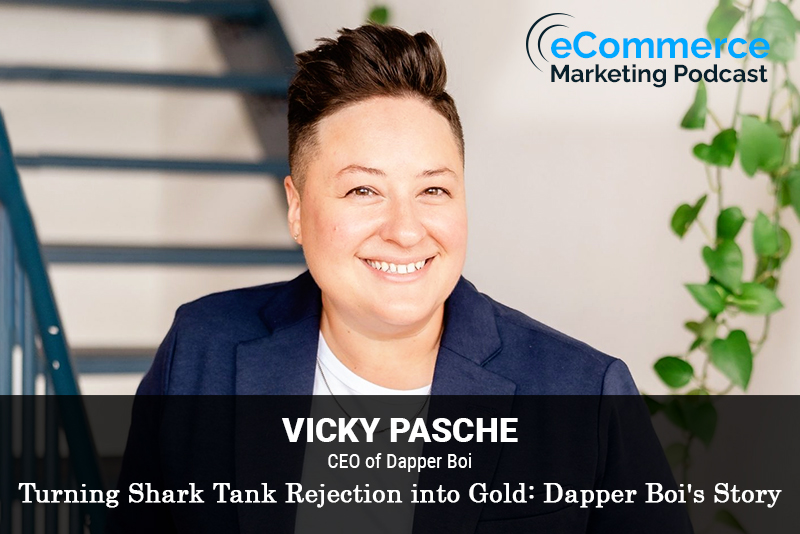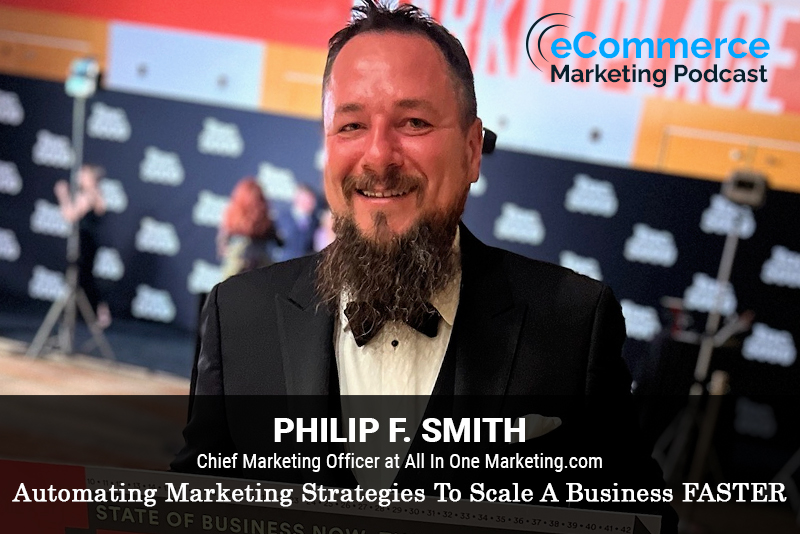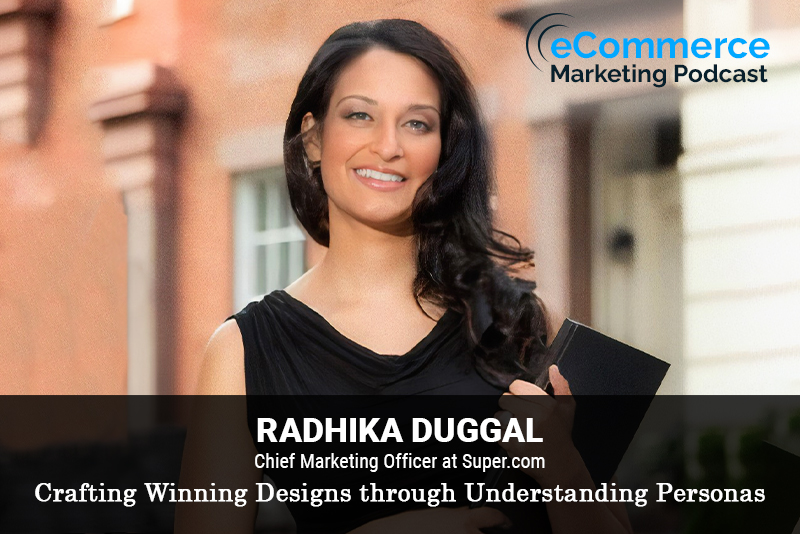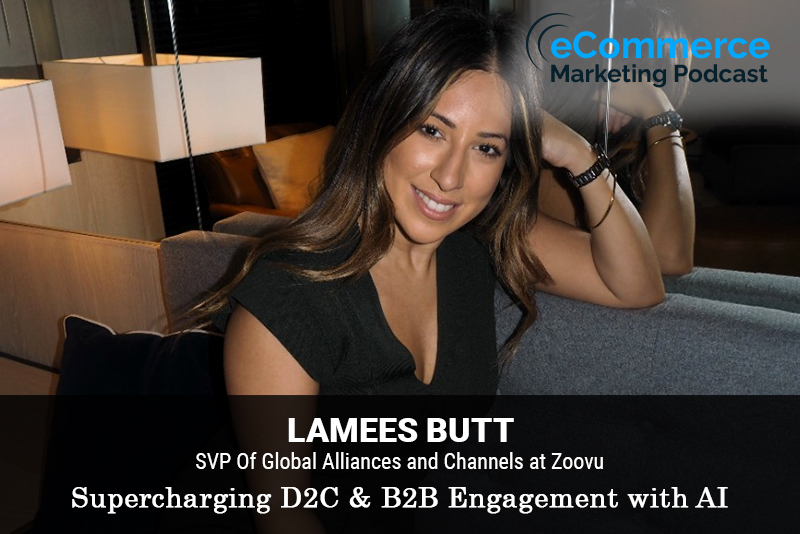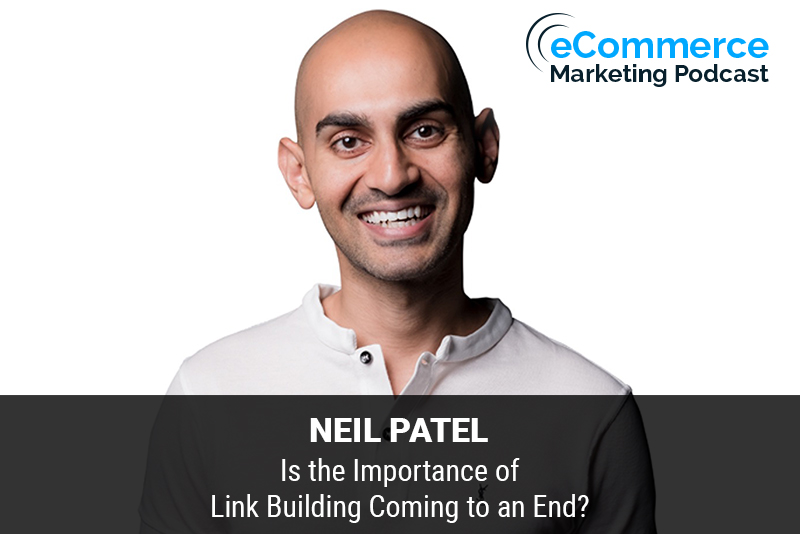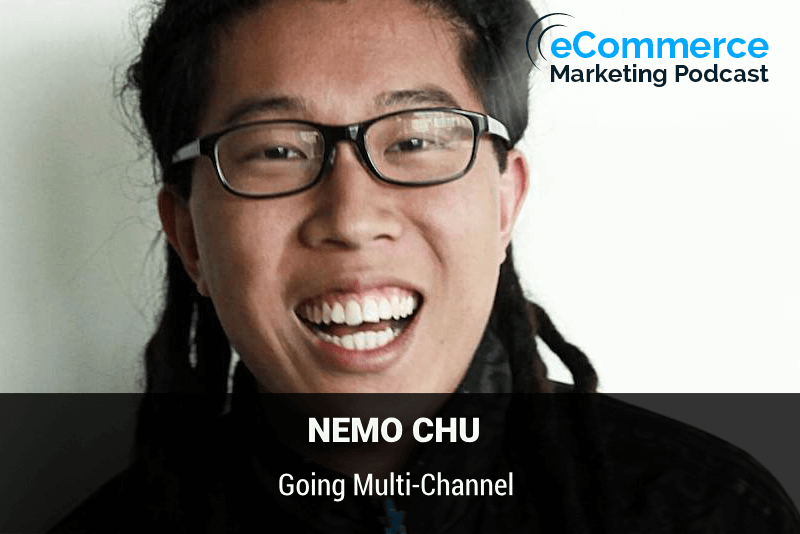
The eCommerce Marketing Podcast walks you through everything that goes into ecommerce marketing — from inbound marketing to paid advertising to conversions. Learn the strategies top marketing experts use to grow their businesses.
Quimby Melton is the co-founder and CEO of Confection. He has spent the past fifteen years building a diverse range of businesses and products. These include a marketing consulting agency, a logistics application for the offshore energy market, two business marketing apps, a modular housing company, and a handful of content sites and short films. Quimby holds an AB in English from the University of Georgia and an MA and PhD in English from UNLV. He lives in California’s East Bay with his family.
In this episode, you will learn
- How do browser based disruptions affect your ad retargeting and showing relevant ads to the right audience
- Ways that an ecommerce company can get around these issues and build their own first party data sets
- Other forms of ecommerce marketing and advertising that are not reliant on browser tracking and cookies
- Examples of some ecommerce businesses that have created data-sharing partnerships to get around the changing browser technologies
For show transcript and past guests, please visit https://www.ecommercemarketingpodcast.com
Or on YouTube at:
https://www.youtube.com/channel/UC3PgT0NOGzpdPGQtBK0XLIQ
Follow Arlen:
Twitter: https://twitter.com/askarlen
Facebook: https://www.facebook.com/arlen.robinson.7
Instagram: https://www.instagram.com/arlenyohance/
LinkedIn: https://www.linkedin.com/in/arlenrobinson/
Past guests on the ecommerce marketing podcast include Neil Patel, Nemo Chu, Luke Lintz, Luke Carthy, Amber Armstrong, Kris Ruby and many more.
Thanks for listening. Be sure to subscribe and leave a review.

In this episode of the eCommerce Marketing Podcast, host Arlen Robinson interviews Quimby Melton, the co-founder and CEO of Confection. Quimby shares his extensive experience in various industries and discusses the challenges eCommerce businesses will face as browsers impose stricter privacy controls and eliminate third-party cookies. He also offers insights on how businesses can adapt to these changes and build robust first-party data strategies.
Key Takeaways:
- Introduction to Quimby Melton (00:00:57)
- Quimby Melton, co-founder and CEO of Confection, has a diverse background in various industries and has built numerous businesses and products.
- Origin of Confection (00:03:25)
- Confection was born out of the need to address issues with privacy-focused browsers like Brave blocking essential marketing and analytics scripts.
- Impact of Browser Changes on eCommerce (00:07:14)
- The upcoming changes in Google Chrome will significantly affect eCommerce companies’ ability to track ads and retarget customers, causing disruptions in ad visibility and data accuracy.
- Current Challenges in Data Tracking (00:08:51)
- Issues such as inaccurate analytics, multiple conflicting dashboards, and difficulties in making informed marketing decisions due to poor data quality.
- Adapting to Privacy-First Browsing (00:10:11)
- Emphasizing the importance of owning data and building robust first-party data strategies to ensure reliable data ingestion and decision-making.
- Alternative Marketing Strategies (00:13:24)
- Suggesting the use of affiliate marketing, email marketing, and content marketing as effective methods to circumvent privacy-related disruptions.
- Affiliate Marketing Adjustments (00:15:10)
- Highlighting the shift towards using promo codes and manual tracking methods to ensure accurate attribution of sales to affiliates and influencers.
- Importance of Data Capitalization (00:17:52)
- Encouraging eCommerce businesses to move away from dependency on third-party apps and focus on capitalizing their own data to make informed marketing decisions.
- Examples of Successful Adaptations (00:21:02)
- Businesses successfully synthesizing information across multiple platforms and dashboards to improve decision-making and ad performance.
Bullet Points of Key Takeaways with Timestamps:
- [00:00:57] Introduction to Quimby Melton and his diverse background.
- [00:03:25] Origin of Confection and addressing privacy-focused browser issues.
- [00:07:14] Impact of Google Chrome changes on eCommerce tracking.
- [00:08:51] Current challenges with data tracking and analytics.
- [00:10:11] Adapting to a privacy-first browsing environment.
- [00:13:24] Alternative marketing strategies: affiliate marketing, email marketing, and content marketing.
- [00:15:10] Adjusting affiliate marketing methods using promo codes.
- [00:17:52] Importance of data capitalization and owning data.
- [00:21:02] Examples of businesses successfully adapting to data privacy changes.
Guest Information:
Quimby Melton
- Co-founder and CEO of Confection
- Connect on LinkedIn
- Learn more at Confection

